Bouncing Back from Retrieving’s Rigors
Care before and after exercise speeds muscle recovery

By Bill Miller
If we’re being honest, when it comes to physical exertion, most of us are truly weekend warriors. Unlike professional athletes, we don’t follow daily workout regimens; we aren’t strictly following diets perfected by trained, experienced scientists. Heck, most of us don’t get enough quality sleep or even drink enough water every day.
Then comes an event requiring extended physical exertion. Because we’re duck hunters, that might be building and brushing a blind. It might be packing in and tossing a bunch of decoys. It might be trudging through knee-deep, sucking mud while putting out a massive spread for wary snow geese, then doing 500 situps in the layout blind as birds work.
The results (besides, hopefully, some memorable hunting) are stiff and sore muscles for the next few days. There might even be charley horses to levitate you from your bunk and leave you screaming in the middle of the night.
It’s nothing to be embarrassed about (or so I keep telling myself). I’ve been there. In fact, I currently live there and don’t envision moving any time soon, especially since age 60 is in my rearview mirror.
Comparing our dogs’ physiology to our own is usually a good way to get into trouble, but some research reveals that techniques to speed muscle recovery in humans are indeed similar to those for dogs. The key for both dogs and humans is to avoid becoming weekend warriors.
Speedy muscle recovery after exertion, both for retrievers and their owners, requires:
- Exercise
- Proper diet
- Adequate hydration before, during, and after exercise
- Ample quality sleep on a regular basis.
Let’s take a closer look at applying each area to our dogs’ routines.
Fetching Fitness
What’s the opposite of a weekend warrior? A well-conditioned athlete, of course. That’s what we’d all like to be and what we would like our duck dogs to be. The closer we can come to that dream, the less we’ll suffer following periods of strenuous activity and the faster we’ll be ready to get back at it.
If not overfed, dogs generally stay in much better condition than their masters. Off lead, even my 12-year-old springer still runs most everywhere she goes (albeit more slowly than she used to). That can’t be said for her owner—not by a long shot.
However, if you know there’s going to be a heavy workload in your dog’s future, like a spring snow goose hunt where there might be 50 or 100 or more retrieves in a day, it’s smart to start a conditioning program well ahead of the event. Just like you would if you set your sights on running a marathon on a specific date in the future.
Even if you’ve been providing your dog with a good exercise regimen, about eight weeks before the “big hunt” is the right time to start working up to it.
A dog (or person) in excellent shape entering into strenuous activity will recover from it faster and less painfully.
Good Eats
 Next to being in shape and in general good health (in which diet also plays a major role), the most important assurance of speedy recovery during “the big hunt” is proper nutrition.
Next to being in shape and in general good health (in which diet also plays a major role), the most important assurance of speedy recovery during “the big hunt” is proper nutrition.
As noted in last issue’s Eukanuba “Duck Dog Tip,” even the best conditioned duck dogs can grow fatigued after a few days of hard hunting or training. Some of the strain comes from the buildup of molecules known as “free radicals” in their systems. These molecules are released into muscles during strenuous activity and high excitement.
Eliminating free radicals is key to helping your retriever recover quickly and perform better on Day 2, Day 3, etc. Performance food formulas high in antioxidants help to prevent buildup of free radicals. Check the bag for ingredients high in vitamins C and E, lutein, beta-carotene, and taurine.
You should also be aware of how muscle is built during physical exercise. Strenuous exercise tears down muscle. When muscle recovers, it’s rebuilt stronger. Protein is key to repairing—and strengthening—muscle. This is why Eukanuba and others devote so much research to determining optimal protein levels in their dog food formulas for top canine athletes.
Eukanuba’s Premium Performance 30/20 contains a minimum of 30% protein and 20% fat. For dogs that may not be quite as active on a regular basis or for sustained stretches, Eukanuba offers Premium Performance 26/16 with 26% protein and 16% fat.
Dr. Joe Spoo (aka the Gun Dog Doc) says that a leading cause of overweight, out-of-shape dogs and muscular injuries is failure by owners to properly tailor their dog food’s quantity and formula to the dog’s activity level. He says to monitor exactly what you’re feeding and to make adjustments, as anticipated activity levels vary during the course of the year and hunting season. He also reminds owners that it takes about eight weeks for a new feeding regimen to have a significant impact, so plan ahead.
Hydrate, Hydrate, Hydrate
No matter what their activity level or where they are, canine athletes should have constant access to fresh, clean water. This is another case of “what’s good for the owner is good for the dog.”
Your own muscle recovery is optimized when you stay well hydrated throughout any activity. You end up with a lot fewer charley horses when you drink at least as much water as you do coffee when setting out the decoys!
Even on a water hunt, make sure your dog is supplied with fresh, clean water every time it returns to the blind. During regular training, you should make it a point to encourage the dog to come to you for water rather than lapping up that soup from which it’s retrieving your downed ducks and geese. So if you’re doing it right, the dog will depend on you for water during and after “real” hunts as well.
My father always taught me that at the conclusion of any hunt you take care of the dogs, the game, your guns and gear, and finally yourself—in that order! It holds especially true in making sure that your dog has ample water available and that you allow plenty of quick walks for relief.
Sustaining Snoozes
Most dogs do pretty well handling this step—getting ample, quality sleep—on their own. However, a change in routine, such as travel or strange quarters, can disrupt regular sleep patterns.
The best way to handle it is to make things as similar to home as possible. Begin crate training early in puppyhood. Make that crate the ultimate “safe space” in the dog’s life, where it’s convinced nothing bad can possibly happen. Keep it away from the main hubbub of hunting camp, but not necessarily in a place that’s completely silent, either. Your dog is likely used to sleeping where it knows you’re near and can hear what’s going on in the household. If the dog sleeps with you at home, it should sleep with you on the road. If the truck is its safe space, let it sleep in the truck.
Routine encourages ample, quality sleep. And, along with hydration, exercise, and nutrition, it’s a crucial part of your dog’s overall fitness routine to encourage quick recoveries from rigorous hunts and strenuous training sessions.
Bill Miller is communications director for Delta Waterfowl.

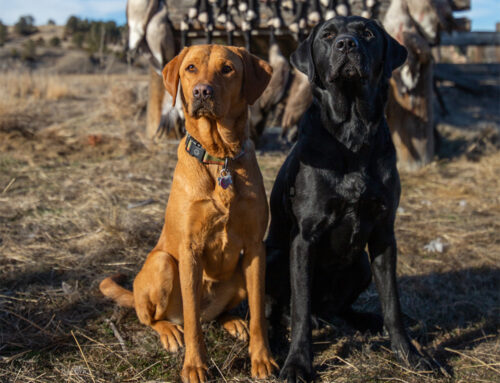
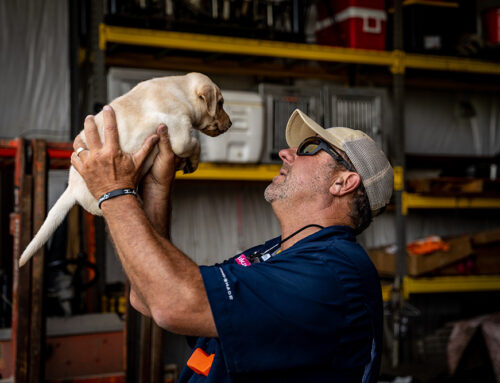
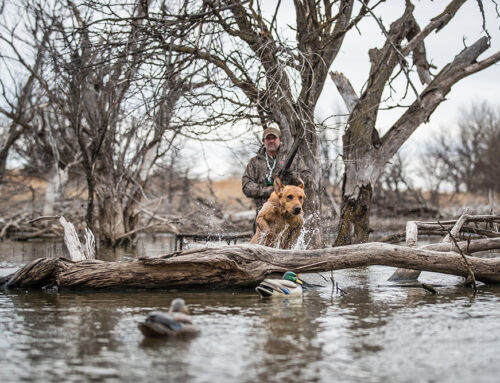
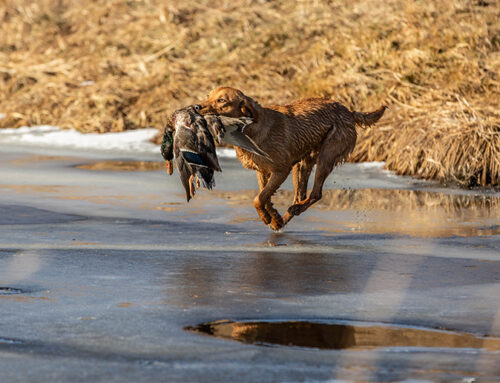
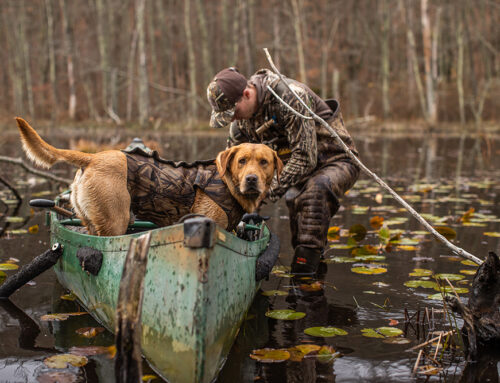
Leave A Comment